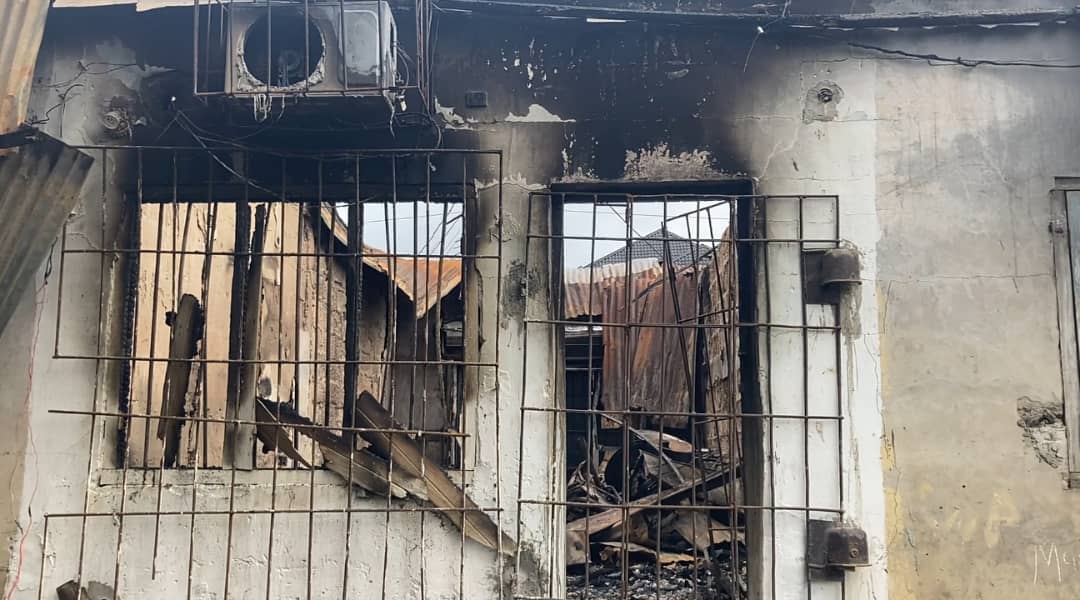NEWS
Oyo Fire Outbreaks: 272 Incidents in 9 Months Spark Safety Crisis in Ibadan

Residents of Oyo State have expressed deep concern over the incessant and escalating cases of fire incidents plaguing the state, fearing a total collapse of business confidence.
Dependable NG reports that the state has witnessed a shocking 272 fire outbreaks between January and September 2025 alone, a statistical tragedy that confirms the danger is not a seasonal challenge but a full-blown public safety crisis. The alarming figures, recently released by the state fire service, highlight a recurring threat to both property and livelihoods in the state capital, Ibadan, and beyond.
The scale of the problem is clear in the official breakdown of the 272 fire incidents recorded in the nine-month period. Commercial buildings, residences, and vehicular accidents constitute the majority of emergency calls, often resulting in millions of naira worth of property being destroyed. The official data highlights a disturbing distribution of the danger, with Domestic/Residential Fires accounting for 120 of the incidents, Commercial/Market Fires for 90, and Motor Vehicle Fires making up another 50. Even Public Building Fires contributed 12 to the grim tally, confirming a high frequency of incidents across all key areas.
The Chairman of the Oyo State Fire Services Agency, Maroof Akinwande, has repeatedly confirmed the high frequency of incidents, often urging citizens to exercise extreme caution with electrical appliances and flammable materials. Akinwande noted in a recent address that a significant portion of the residential and market fires were caused by an electrical surge from gadgets left plugged in or by poor wiring, a trend that suggests a high level of public negligence compounding the infrastructural deficits.
Experts on disaster management have been swift to assign blame, primarily pointing to a lack of investment in both preventive infrastructure and emergency response capabilities. Dr. Samuel Olaosebikan, a Senior Lecturer in Disaster Management at the University of Ibadan, stressed that while the figures are alarming, they reflect a deeper, systemic issue. Dr. Olaosebikan noted that a significant problem lies in the fact that many of the fire stations are not properly equipped with the necessary modern firefighting appliances and on-site water supply, which drastically hinders their response time and capacity to tackle major infernos. Furthermore, he argued that state emergency management efforts are heavily skewed towards reactionary measures—such as distributing relief materials after a disaster—rather than proactive measures involving community-wide preparedness and fire mitigation strategies.
In response to the crisis, stakeholders across the state have intensified their appeals to the state government to make a substantial and long-term commitment to fire safety. The Director-General of the National Fire Academy, represented by Mr. Kehinde Adekunle, has strongly advocated for increased budgetary allocation to the fire service. He highlighted the urgent need for new, fit-for-purpose fire tenders, which are crucial for navigating the often-congested inner-city roads of Ibadan during an emergency.
Similarly, Professor Adewale Olaniran, Director of the Centre for Disaster Risk Reduction, emphasised the importance of enforcing rigorous building codes. He stated that the lack of effective legislation and the failure to enforce existing fire safety policies on market structures and public buildings are major factors aiding the rapid spread of fire when an outbreak occurs. Professor Olaniran stressed that safety protocols must be mandatory, and property owners who fail to comply should face appropriate penalties, noting that this combination of policy and enforcement is the only sustainable way to save lives and property worth millions of naira from going up in flames. The general consensus among all concerned parties is that without a fundamental shift from a reactive to a highly proactive fire disaster management strategy, the state risks seeing the already terrifying figure of 272 incidents soar even higher. Traders, residents, and safety professionals are now anxiously awaiting a comprehensive government plan to arrest this devastating, recurring trend.
